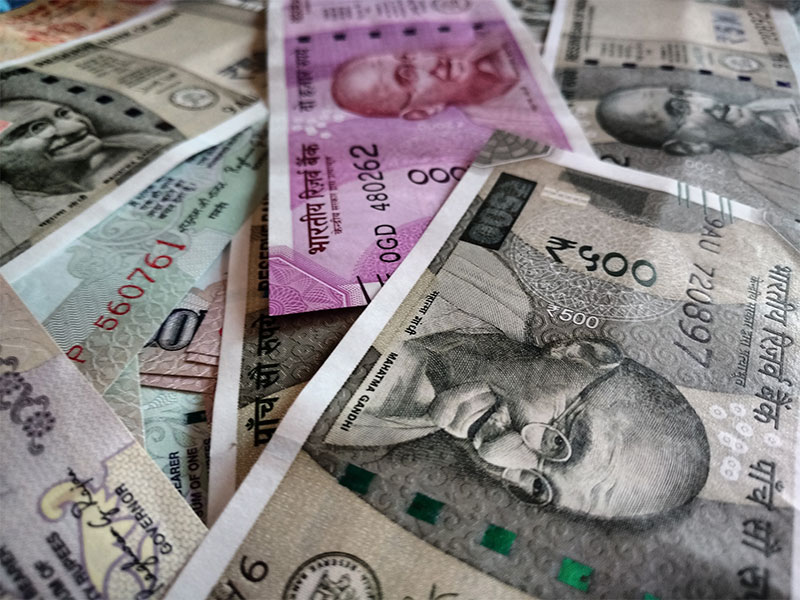TReDS (Trade Receivables Discounting System) is an institutional setup for the flow of finance to micro, small, and medium enterprises (MSMEs) through multiple financiers at a competitive rate. The model outlined for TReDS in the paper, envisages its operation both in the primary market segment as well as a secondary market segment as authorised payment system under the Payment and Settlement System (PSS) Act, 2007. The activities of TReDS are also subject to the supervision of RBI.
Participants in TReDS
There are three direct participants involved in the activities of TReDS viz. i. MSME Sellers, (ii). Corporate Buyers, and (iii). Financiers. The TReDS will provide the platform to bring these participants together for facilitating uploading, accepting, discounting, trading, and settlement of the invoices/bills of MSMEs. The bankers of MSMEs and corporate buyers will be provided with access to the system, wherever necessary, for obtaining information on the portfolio of discounted invoices/bills of respective clients.
As the underlying entities are the same i.e. MSMEs and Corporate buyers, Public Sector Undertakings, and Government Departments, the TReDS could deal with both receivables factoring as well as reverse factoring.
Now Insurance companies will be permitted to participate as a “fourth participant” on TReDS, apart from the MSME sellers, buyers, and financiers. The Statement on Developmental and Regulatory Policies dated February 8, 2023, said that “ to provide further impetus to TReDS platforms, their scope of activity is proposed to be expanded as all entities/institutions eligible to undertake factoring business under the Factoring Regulation Act will be permitted to participate as financiers in TReDS”. Further, secondary market operations will now be enabled on TReDS platforms. This would allow financiers to offload their existing portfolio to other financiers within the same TReDS platform if required.
Factoring and reverse factoring
Factoring refers to a financial transaction where a supplier sells his invoices (book debts/receivables) to a third party at a discount. The third-party (fancier) that discounts the invoice is called a factor.
The MSME trade receivables discounted by banks and other financial institutions on TReDS are essentially in the form of a reverse factoring system. In reverse factoring, the seller (supplier) trades his duly converted factoring units of invoices/bills of exchange, to the financier at the behest of the buyer corporate. The financier (bank or Non-banking financial institution) who buys these factoring units, steps into the shoes of the supplier to receive payment from the corporate buyer on the due date. Once the invoice/bills of exchange are discounted by the financier, the onus of collecting payment from the corporate buyer rests with the financier without recourse to the seller (supplier who sold the invoices/bills of exchange to the financer is discharged from liabilities to the financer on account of discounted invoice). Another advantage to the supplier is that the rate of interest decided by the financer while discounting the invoice (factoring units) is based on the rating of the buyer corporate and not on the rating of the seller. He, therefore, gets better pricing in the competitive bidding due to the good credit rating of his clients.
Features of factoring units
The standard format/features of the ‘factoring unit’ may well be the face value of the entire bill/invoice amount or it could be a pre-defined face value viz. in multiples of 1,000 or 10,000 or 1, 00,000 as decided by the TReDS. To enable this, the TReDS will have a suitable mechanism, whereby the invoice/bill are converted into “factoring units” and held in dematerialized form. Each factoring unit will carry the details of the seller and the buyer, the issue date (could be the date of acceptance), due date, tenor (due date – issue date), balance tenor (due date – current date), the amount due, unique identification number generated by TReDS, account details of the seller for financier’s reference (for credit at the time of financing), account details of buyer’s bank for financier’s reference (for debit on the due date), the underlying commodity (or service if enabled). Each such factoring unit will have the same sanctity and enforceability as allowed for physical instruments under the “Factoring Regulation Act, 2011” or under the “Negotiable Instruments Act, 1881”.
The primary segment of transactions through TReDS:
First stage:
MSME Supplier receives the purchase order from the corporate buyer. The supplier (seller) delivers the goods/service to the buyer along with an invoice/bill of exchange. Pursuant to the delivery, the supplier converts the invoices/bills of exchange of delivered goods into factoring units through TReDS. Further, a supplier may host on the TReDS, the supporting documents evidencing the movement of goods, etc. The factoring unit created on TReDS is intimated to the buyer and his bank through automatically generated notice of TReDS.
Second stage:
The time window available for corporate buyers to accept the factoring units is standardized by TReNDS. The time window may vary based on the underlying documents like an invoice or bill of exchange as they will have separate transaction modules. The buyer logs on to TReDS and flags online these factoring units as ‘accepted’. When the buyer accepts the factoring units online, it binds him to discharge the obligation of the buyer to pay the dues on the due date. There is no scope for disputing with respect to the quality of goods or otherwise. No set-offs are allowed under TReDS.
Third stage:
The financers registered with TReDS may finance against these factoring units. The financer who expressed interest in financing factoring units may quote ‘all-in-cost’ on the TReDS. There will be a window period provided for financers to quote their bids against factoring units. The price quoted by a particular financer can be viewed only by the MSME seller which will not be available to other financiers to view it. Further, there will be no option available to the financers to revise their earlier bids quoted online. This system will ensure a competitive pricing offer from the financer. The seller can opt for a financer of his choice.
Upon acceptance of the bank’s/FI’s bid by the seller, the funds will be credited to the seller’s bank account on a T+2 basis (T being the date of bid acceptance). These financed instruments will be rated by the TReDS, on the basis of an external rating of the buyer corporate, the nature of the instrument (invoice/BOE), and previous payment records of the corporate buyer with TReDS. The financing bank on the release of funds to the supplier generates a notice/advice to the buyer and buyer’s bank informing them to make note of finance made against trade receivables from the buyer corporate. The notice also calls upon the buyer’s bank to make note of the debit instruction for the value due and due date under the settlement obligations generated by the TReDS.
Fourth stage:
On the due date of payment, TReDS will advise to the buyer and the buyer’s bank to arrange the funds for settlement of the financer’s due. The payment made by the buyer will go to the account of the financer through the direct debit authority and settlement process mechanism of TReDS. In case the corporate buyer fails to settle the dues of the financer on the due date, such failure may be deemed as default which will have the bearing of various repercussions including penal actions against the corporate buyer.
The secondary segment of transactions through TReDS:
Whenever further discount or re-discount of receivable transactions takes place in the secondary segment, TReDS automatically generates a notification of assignment in favour of the new financier. TReDS will further generate a ‘notice of assignment’ intimating the buyer to make payment to the new financer. The payment made by the buyer will go to the account of the new financer through the direct debit authority and settlement process mechanism of TReDS.
The TReDS is vested with the authority to conduct random audits of the participants so as to ensure that there is no window dressing taking place and only authentic factoring units are uploaded on the exchange,.
RBI releases Names of Applicants of Trade Receivables Discounting System (TReDS)
The Reserve Bank of India 25.03.2015 released the names of applicants who have applied for setting up the Trade Receivables Discounting System (TReDS). These are:
Sr.No. Name of the entity
- NSE Strategic Investment Corporation Limited (NSIC) and Small Industries Development Bank of India (SIDBI), Mumbai
- Trade Receivables Exchange (Group of Banking Professionals), Mumbai
- Axis Bank Limited, Mumbai
- Mynd Solutions Pvt. Ltd., Gurgaon, Haryana
- DICIC Bank of India, Kolkata, West Bengal
- NSDL Database Management Limited (NDML), Mumbai
- Trade Receivables Exchange (T-REX), Mumbai
It may be recalled that the Reserve Bank of India had invited applications for setting up of and operating the Trade Receivables Discounting System (TReDS). The last date for receiving applications was February 13, 2015, which was extended up to March 9, 2015.
Latest developments:
There have been growing apprehensions among bankers about fake bill transactions conducted through the TReDS platform. Finance Minister Arun Jaitley in his latest Budget 2018 speech informed that public sector banks and corporates will be on board when it comes to TReDS and will be linked to GST. Linking of the TReDS to the GST Network (GSTN) once implemented is expected to drastically reduce, if not completely eliminate the problem of fake bills, as all these bills will be authenticated from GSTN. Linking TReDS to GSTN will also allow banks to have access to the cash flow information of MSMEs which would immensely help in evaluating the creditworthiness of parties and credit decision-making.
Related Posts:







